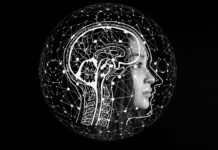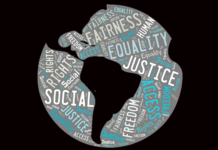How Western Psychiatry Harms Alternative Understandings of Mental Health
An anthropological look at the Global Mental Health (GMH) movement suggests several ethical problems and contradictions in its mission.
Study Calls for Consensus on Overdiagnosis Across Medical Disciplines
Lack of overdiagnosis parameters stifles communication across fields seeking to mitigate its potential harm.
“Attacks on Hoffman Report From Military Psychologists Obfuscate Detainee Abuse”
Steven Reisner and Stephen Soldz, writing for Counter Punch, take on those who have criticized the Hoffman Report, which found that the APA had actively colluded in the US Torture program. “They have not credibly refuted these core findings of Hoffman’s seven-month investigation, nor have they even attempted to do so.”
Current Immigration Policies Create Mental Health Vulnerabilities for Families
Researchers investigate the impact of immigration policies on the mental health of arriving Mexican and Central American immigrants.
Experts Raise Ethical Concerns About Machine Learning in Medicine
The use of machine learning algorithms (known as artificial intelligence) in the medical field raises a slew of ethical concerns.
Neoliberalism Drives Increase in Perfectionism Among College Students
Meta-analytic study detects upsurge in patterns of perfectionism in young adults and explores how neoliberalism contributes to this trend.
Screen Time Linked to Increased Depressive Symptoms Among Teens
New study examines how increased screen time and social media may be contributing to depressive symptoms and suicide risk in teens
Connections Between Climate Change Concerns, Mental Health, and Pro-Environmental Actions
Concerns about the impact of climate change on animals and nature results in more effective coping to reduce hopelessness about climate change and promotes pro-environmental behaviors.
Increasing Prevalence of Mood Disorders Among Teens and Young Adults
Depression, serious psychological distress, and suicide attempts have risen substantially since the early 2000s among young adults – what’s changed?
Psychology Needs New Concepts and Healing Models for Racial Trauma
Contemporary empirical research explores new ways to conceptualize and heal racial trauma through anticolonial and sociohistorical lenses.
America’s Opioid Crisis Proves the Limits of Capitalism
In this piece for RT, Slavoj Žižek discusses the impact of capitalism on America's opioid crisis, exploring the factors that have driven people to use drugs...
Smartphone Based Interventions for Depressive Symptoms
New meta-analysis of smartphone based interventions demonstrates small-to-moderate effect.
Sunday Oddity: “How do you diagnose and treat an illness that doesn’t linguistically exist?”
Canoe.ca reports on the doings of Canadian psychiatrist Dr. Stanley Kutcher, previously exposed by MIA Blogger Alison Bass for his role as a co-author...
Anti-Stigma Campaigns Enable Inequality, Sociologists Argue
Scholars contend that stigma functions as a mechanism of power in analysis of UK Heads Together mental health campaign.
What Does Social Justice Really Mean for Psychologists?
Without clarity and consensus around what social justice means, psychologists risk perpetuating injustices that undermine their stated mission.
“94 Psychiatric Patients in South Africa Died of Negligence, Report Finds”
The New York Times reports on the findings of a South African government investigation that determined that "94 psychiatric patients died of negligence last year after being...
Nunavut Declares Suicide Epidemic a State of Emergency
Nunavut, Canada’s largest and northernmost territory, is suffering from a suicide rate that is 10 times the national average. “In the case of Inuit boys 15 to 19,” CBC News reports, “the suicide rate is 40 times higher than those of their peers in the rest of Canada.”
More to Happiness Than Feeling Good, Study Finds
Cross-cultural data suggest that happiness involves feeling the emotions one deems as right, in accordance with personal and cultural values.
International Study Documents Widespread Distress in College Students
An international study of college students reveals ubiquitous social and emotional challenges faced by young adults.
“We Need REAL Change in Mental Health Policy, Not the Illusion of Reform”
David Shern, from Johns Hopkins University, writes that the latest mental health “Murphy bill” in Congress is “an expansion of the approaches that got us into our current difficulties.” “Early intervention and prevention, assessable and patient-focused services with a rehabilitation orientation and increased funding for the community supports needed for successful recovery are the tickets to system improvement.”
Mental Health Apps May Lead to Overdiagnosis, Study Finds
A new study finds that mental health apps promote a one-dimensional view of mental health.
“Why San Bernardino Polarized America and What It Means for Our Political Future”
What does the psychology of terror mean for America’s future? Social psychologist Daniel Kort weighs in on what the science of terror management theory, behavioral economics, and political polarization can tell us about where we’re headed.
“Toward a new architecture for global mental health”
McGill University's Laurence J. Kirmayer and Duncan Pedersen examine the core controversies that dog the "global mental health" agenda in a freely available editorial...
“Powerful Pill is Called Toxic Fuel for Fighters in Syrian War”
Peter Holley reports for the Washington Post that a powerfuland highly addictive amphetamine drug known as fenethylline or Captagon is being used to fuel ISIS fighters in Syria and Iraq. “Captagon has been around in the West since the 1960s, when it was given to people suffering from hyperactivity, narcolepsy, and depression.”
The Psychological Effects of the Zero-Tolerance Immigration Policy
Journal releases a compilation of articles detailing how zero-tolerance policy may impact mental health.



























